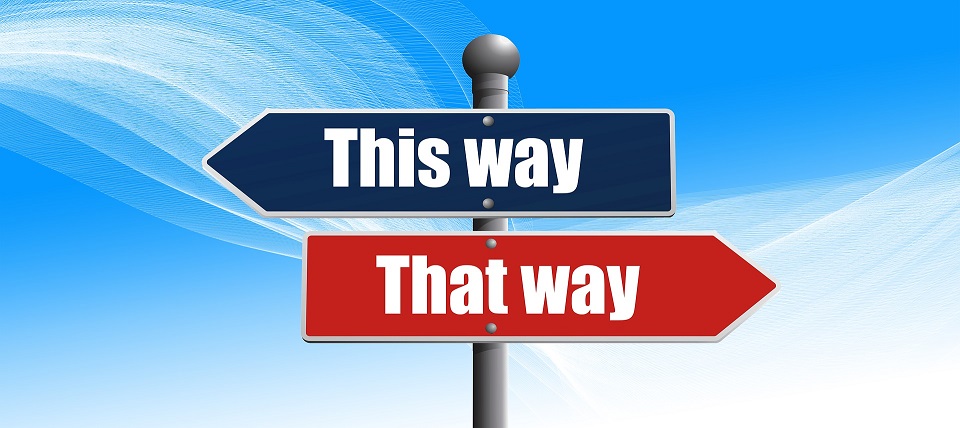
There is a Polish saying that, for a poor one, the wind always blows into the eyes. There are similar English sayings such as “the poor must pay for all,” “a poor boy never wins,” or “when it rains, it pours.” But none of them encapsulates so well the banal truth that for the underprivileged, whatever takes place invariably means trouble. The most affluent among us, more often than not, can position themselves in a way that the wind blows into their sails. Many of us can achieve the same at least sometimes, perhaps suffer occasionally, or find a shelter. The weak ones, all the time, have it uphill.
Do we have a dystopian society in America?
That Polish saying came to mind when I read the essay “The Pandemic Will Cleave America in Two” by Joe Pinsker, published recently in The Atlantic. In his lengthy article, Mr. Pinsker painstakingly lists all the disadvantages that the poorest among us face when encountering COVID-19.
They have more ongoing health issues already, and their access to medical care is inadequate. They work in service businesses open during the pandemic. Their households often cluster multigenerational families in compact living spaces. Those conditions put them at a higher risk of becoming infected and dying as a result. When they work, their kids stay home unattended. With no internet service, or an inferior one, their youngsters will fall behind more than others. Living from paycheck to paycheck and having no money in reserve, they will be hurt more severely than most of us, if someone loses a job, gets sick or dies.
Mr. Pinsker elaborates in impressive detail about the disparity of our experiences during the COVID-19 pandemic. He confirms other folks’ prudence that the disadvantaged will suffer more than others. There is nothing newsworthy in his conclusion that the COVID-19 will leave us with inequalities even more profound than before. When reading his report, at some point, I began wondering what is the purpose of writing about the obvious.

In the middle of the essay, Mr. Pinsker gives us a hint by citing a disabled lady: “Life in America is always hard without cash reserves.” Should we assume that without spare cash, life is better elsewhere? A few paragraphs further, a reader can find that seemingly innocent quotes like this one, along with the extensive list of inequalities, were just the artillery preparation for a bomb that Mr. Pinsker is dropping on us. He does it by stating as evident that we have an “often dystopian nature of American inequality.” The term “dystopia” originates from the ancient Greek words describing a bad place. In dictionary meaning, “dystopia” is a society where there is great suffering or injustice, or as a society characterized by human misery, as squalor, oppression, disease, and overcrowding. In other words, Mr. Pinsker is not writing about the COVID-19 experience. For him, it is a pretext to tell us how horrible America is.
Understanding America
Millions of people from all over the world risk their lives trying to come here. Are they deprived of the wisdom that Mr. Pinsker already possesses? Or, do they know something that Mr. Pinsker misses? We must admit that many influential people agree with Mr. Pinsker that America is full of misery, injustice, and oppression. What is the root cause of all of that misery that we have? It is the burning question that does not inflame Mr. Pinsker at all.
The message of Mr. Pinsker smells fishy to me because I do not sense a human touch in it. He writes about low-income people from afar. He did not visit that disabled lady in her residence. He did not talk with her about her predicaments. For The Atlantic’s writer, she is an abstract illustration of the statistically accurate picture he received from reports compiled by experts, it appears, also analyzing statistics but not talking to the individuals in question. I do not know but suspect that children from impoverished families were not his buddies in school. Likely, he never worked on the same team with people he claims he cares about so much.
I have been involved in service businesses in the Chicago area for over 30 years. I have had customers among the richest and the poorest. In my work, I have encountered a few thousands families that Mr. Pinsker cares about so much. They were my customers. In the worst neighborhoods of Chicago, I visited at least a few hundred of them in their residences. We sat at their kitchen tables and talked business. At some point, many men and women that Mr. Pinsker advocates for were my employees. It is a basic human instinct to help the needy; hence, with a little mentoring, I probably helped more guys and gals I met than The Atlantic did by its advocating for people their authors and editors do not interact with. I cite one example in this article.
I have met many successful immigrants, as well. It is remarkable how often low-skilled immigrants, barely speaking any English, thrive in America. Many Americans, for generations, have lived with the conviction that opportunities in America are beyond their reach. They do not see an irony that they pay rent to newly arrived immigrants and shop in immigrant-owned corner stores or gas stations.
I once counted immigrants, whom I know personally, who became millionaires. Doing some extrapolations, I estimated that just by making it to this country, one has at least several hundred times better chance to become a millionaire than by playing Lotto. I still occasionally make a high-risk, high-return, but low-level investment by buying a lottery ticket. But when I stand in line to spend my $1, I see in front of me people handing to the clerk at least a few $20 bills for their lottery purchases. My rational guess is that many of the heavy lottery players are the same that Mr. Pinsker stands for.
When visiting their residences, I did not spot The Atlantic on their tables, but saw their TVs and was privy to know that they spend on TV watching much more than I considered rationally justifiable. This is the America I know. Hence, Mr. Pinsker does not sound convincing when he laments that about 40 percent of American adults do not have enough cash on hand to cover an unexpected $400 expense. The barely literate immigrants who buy their first six-flat several years after arriving here were also cash deprived upon their arrival.
Where America is cleaved in two
America is not divided into those who have and those who have not. The real cleavage is in understanding what America should be. Lamenting about disparities, Mr. Pinsker carefully avoids telling us what kind of equality he pursues. Should it be like in China during the Cultural Revolution, where everybody from the top down should be dressed exactly the same, eat the same food, and live in similar quarters? Or should it be as in Sweden when they were toying with socialism and entrepreneurs such as Ingvar Kamprad, the founder of IKEA, needed to leave the country to build their businesses?
By nature, people are different. Some aspire to have an enormous house with door handles made of solid gold. Others are content with a humble flat as long as they can read books they are interested in or listen to the music they like. Sadly, some are satisfied with watching TV around the clock, as long as they have a roof over their head and are not hungry. Should not equality mean that all of them should have the same right to pursue their preferred lifestyle? But should not equality also mean our understanding that in difficult times not all of us would fare equally well?

Appealing to our compassion, Mr. Pinsker takes as a given that America is a dreadful place and does not even ask why we became this way. His laments imply that those of us who are better off should give up a little of our wealth to help the poor. This brings to mind the book “Coming Apart” by Charles Murray. My life experiences resonate with the data he collected, and with his conclusions that after about half a century of our welfare policy, we have more than before Americans living in a state of economic and moral decay.
In every society, some do not take part in the prosperity experienced by most. Hopefully, for some, it is a temporary downfall. Charities can help them and those with permanent disabilities. In the United States, whatever we are doing to eliminate poverty results in more Americans sliding down into dependency on social support. Fewer are achieving the financial stability necessary to weather the storms such as COVID-19. However, the ongoing successes of immigrants prove that despite all its shortcomings, America is still the nation of equal opportunities for those who dare to try. The actual question in front of us is why so many of us give up before even trying. It would be interesting to read the opinion of Mr. Pinsker on this matter.

 Many tell us what to think. I ask my readers to be skeptical. Question me and others.
Many tell us what to think. I ask my readers to be skeptical. Question me and others. 